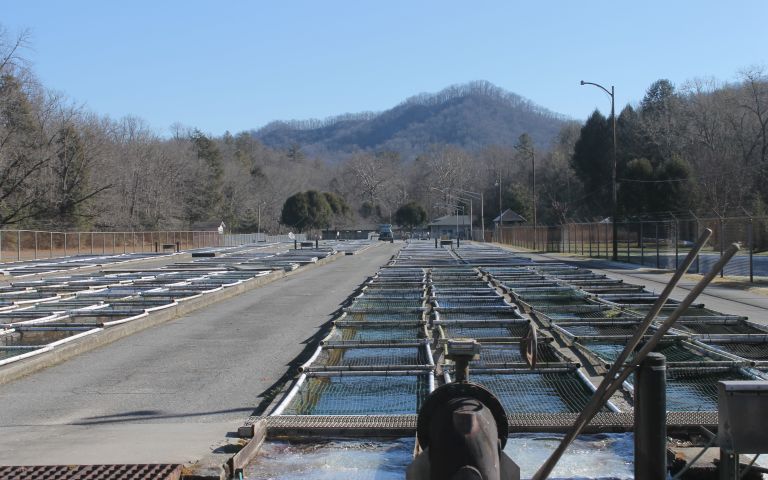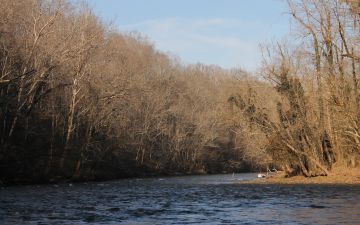A 2020 climate change report released by the North Carolina Institute for Climate Studies lays out a dire future for the state. In mountainous Western North Carolina, home to the state’s freshwater trout industry, the report anticipates average temperatures to increase and an increase in frequency of severe storms. This could present challenges for one of the most important industries in Western North Carolina.
The trout industry, which includes trout farms that supply restaurants around the country, flyfishing, and outdoor recreation, and the state wildlife commission that stocks fishing rivers, add up to a multi-million dollar industry. Trout depend on cold water temperatures, and as water temperatures rise about 60 degrees, trout become easily stressed and susceptible to infection and death. All the elements of the freshwater mountain trout industry, from the farms to the fly fishermen and women to the stocking systems, depend on the clean, cold, and healthy high-elevation ecosystems of the North Carolina mountains. In a future that is hotter, wetter, and fueled with more severe wildfires and storms, the trout and the people who depend on them will have to find new ways to survive.
These climate threats are also exacerbated by the region’s recent population boom. Especially in 2020, many people left cities in droves seeking places to be outside safely during the pandemic. Western North Carolina’s real estate market has exploded, with property values soaring and people buying houses only a few days after they are put up for sale. Those who work in outdoor recreation are finding their shelves cleared of rods, bikes, and trekking poles. This increasing pressure from land use change and a growing population adds additional stress to trout ecosystems, creating further complexity around the trout’s future.
Western North Carolina likely won’t see an enormous climate disaster like the rising seas along the coasts or the megafires in the West. Yet, it’s label as a climate refuge doesn’t mean it is immune from the effects of the climate crisis. Examining climate change in Western North Carolina reveals what many places around the world will likely see: smaller threats that all interact with each other, creating change and complexity that could lead local communities dependent on natural systems to hang in the balance.


